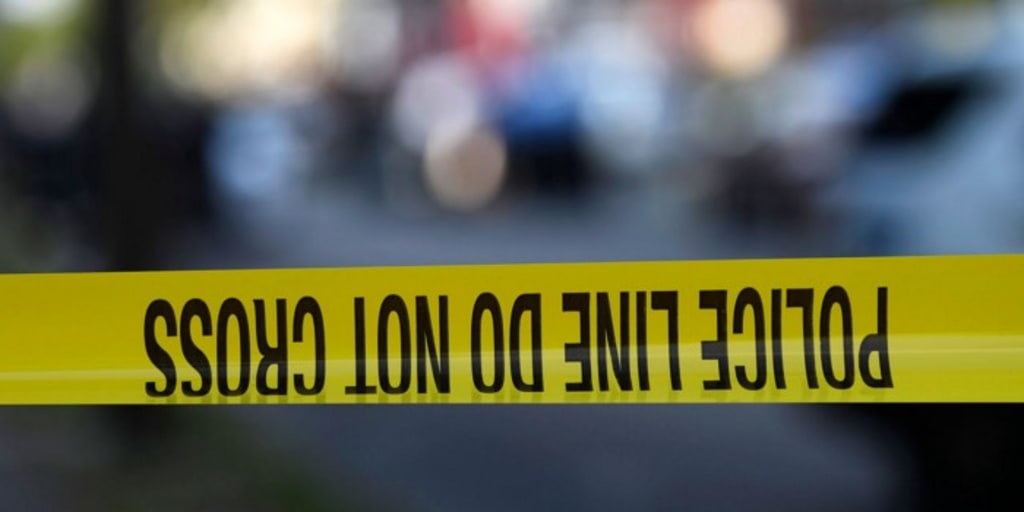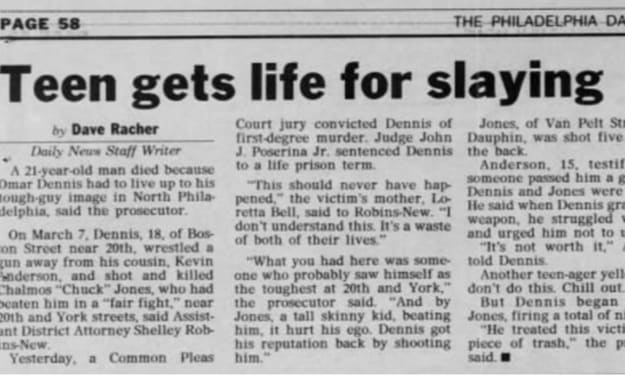Philadelphia’s Policies of Surrender | City Journal
After going out to dinner last Saturday in Philadelphia’s center city, I noticed that every street leading to Penn Square was closed off by police.

When I contacted a friend in the Philadelphia police, he informed me that the streets were closed “because of the ATVs.” More senior sources in the police department’s command ranks then told me that, responding to an embarrassing incident the night before in which hundreds of illegal dirt bikes and all-terrain vehicles (ATVs) seemingly took over Philadelphia, Police Commissioner Danielle Outlaw shut down traffic into these areas the following evening. Though the illegal-vehicle scourge undermines public safety and quality of life, top city officials appear more willing to surrender than to enforce the rule of law.
This was not the first time the Philadelphia police had come under fire for failing to react appropriately to organized gatherings of drivers flaunting traffic laws. This time, hundreds of vehicles were caught by news helicopters racing through city streets-blowing through red lights, driving on sidewalks, and weaving recklessly in and out of traffic. News cameras followed the caravan’s path, which started in the Port Richmond section of the city; made its way four miles south, stopping at a Lukoil in Northern Liberties at Delaware Avenue and Spring Garden Street to refuel; and went down Delaware Avenue to Columbus Boulevard in South Philadelphia, traversing the whole city.
Police proved unable to stop the caravan. On the riders’ return into center city, police tried to create a barricade at Broad Street and Washington Avenue while bikes regrouped at a gas station. But riders avoided the barricade by simply turning down Ellsworth Street and passing through a dense, residential neighborhood. After the gas station turned off its lights and pumps in an apparent attempt to get them to leave, they ventured west on Spring Garden and headed to the Philadelphia Museum of Art, where they rode up and down the iconic steps before passing by police headquarters and City Hall. News choppers then followed them to the high-crime Feltonville section of the city, where they stopped in a large parking lot before finally dispersing for the evening without any intervention by police.
In a statement sent to Action News, Philadelphia police said, “Unfortunately, as you know, these incidents happen frequently in our city. The PPD is aware of tonight’s incidents and is deploying the necessary resources to affected areas to ensure the safety of all.” Spokesmen also said that “public safety is their number one priority, which is why they can’t chase these riders through the city.” The police added that if they can confiscate these vehicles safely, they will.
According to the department, these riders have strength in numbers and often organize to meet over social media on warm nights. Why, then, weren’t they stopped? The PPD manages a “Real Time Crime Center” (RTCC), housed in the federally funded Delaware Valley Intelligence Center, a multimillion-dollar facility designed to share and analyze information on crime trends. As far back as 2009, when violent flash mobs -often organized on social media-popped up around the city, the RTCC tracked online posts to deploy officers preemptively. Did this sophisticated operation miss the weather reports and social-media posts that organized hundreds of illegal dirt bike and ATV riders, or was the intelligence simply ignored?
In today’s Philadelphia, the question unfortunately has to be asked. City policies are apparently aimed at preventing criminal enforcement to reduce incarceration, as opposed to protecting the vast majority of citizens who play by the rules. Instead of using the opportunity to corral these illegal vehicles in one place and undertake lawful traffic stops to clear the streets of illegal guns, people with warrants, and unlicensed drivers, the nation’s fourth-largest police department allowed these mass violations of traffic laws to occur and responded by closing off streets to lawful motorists the following night. Instead of enforcing the law for those choosing to ride illegal off-road vehicles on city streets, the city’s official policy was to cut off traffic south on 15th Street from Arch Street, as well as Market from 17th Street to 13th Street, Broad Street from Walnut to Race, and JFK Parkway and Penn Square around City Hall.
At the root of the problem are municipal ordinances and administrative policies that clash with state laws. Despite numerous state vehicle-code laws and a recent city council ordinance to amend the city’s traffic code to include dirt bikes, ATVs, and dune buggies as illegal street vehicles, municipal policies restrict officers from pursuing or attempting to corral these vehicles. The same city council that amended the vehicle code also passed the “Achieving Driving Equality” ordinance, which prohibits police from stopping drivers for simply being in visible violation of the state vehicle code. Police sources say these illegally operated vehicles are usually not registered, meaning the people operating them could be cited. But PPD policies restrict officers not only from chasing fleeing vehicles but also from “boxing them in.”
“There is nothing we can do,” said a ranking police department source speaking on condition of anonymity. “We have a ‘no pursuit’ policy when it comes to [ATVs and dirt bikes]. In our ‘no pursuit’ policy, we have a ‘no boxing in’ policy, so we cannot surround them and box them in. Even if we did, they would hit the police cars and flee, then the officer would be in trouble and would [face] disciplinary action.” State-police sources say they feel “outgunned and undermanned” now that local law enforcement is not conducting traffic stops on cars headed to highways, a sentiment that was reinforced when two state troopers were killed by a drunk driver who had been stopped for speeding moments before but was released after officers had to respond to a higher-priority call.
Officers worry that they could be fired or indicted for taking action if the situation were to escalate. In 2017, police officer Ryan Pownall stopped an off-road vehicle being operated by David Jones, a felon carrying an illegal firearm. When Jones fled, Pownall shot him in the back. The interim district attorney and Pennsylvania attorney general’s office declined to charge Pownall, but newly elected D.A. Larry Krasner charged him with third-degree murder. More recently, Commissioner Outlaw announced her plans to fire an officer who shot and killed a 12-year-old suspect fleeing on a bicycle after shooting at four officers with an illegal gun. The shooting violated the department’s “use of force directive,” Outlaw said. Police sources say that her decision was made before an internal investigation has concluded, and Outlaw doesn’t contest that the minor had shot at the cops and retained the weapon while fleeing.
One can only conclude that the city would rather see offenders go free than risk controversy resulting from the police use of force, even if it is legally justified. As an uninterrupted cycle of criminality leads to more serious crimes, it’s no wonder that Philadelphia is setting homicide records.
Photo by Mark Makela/Getty Images
Originally published at https://www.city-journal.org on March 29, 2022.






Comments
There are no comments for this story
Be the first to respond and start the conversation.